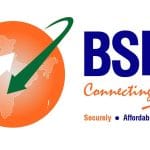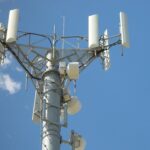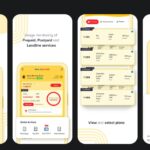State-owned telecommunications company Bharat Sanchar Nigam Limited (BSNL) has told Telecom Regulatory Authority of India (TRAI) that there is no requirement for introducing Unified Numbering System (UNS) in India.
In the comments accessed by OnlyTech, BSNL has submitted to TRAI that unified numbering system will have a very adverse effect on the wireline consumer base and with this system BSNL will be affected most. Further, it added that apart from BSNL the heavily affected one will be consumers.
BSNL explained that as per the present numbering scheme the wireline numbering has geographical and location significance. When a customer calls a landline number, it is known that it will be replied from a particular geographic location. The physical location of a fixed line brings a lot of substance and value to the call. And for emergency, official and business purposes, the fixed line is necessary and it is very much necessary that the dialling customer knows that dialled number is fixed line, which is not possible with UNS as it is much more personal and dynamic.
The operator added that fixed lines numbers are currently being used for verifications and fixed-line bills are also authentic documents for address proof even in government services so these numbers must be separate from wireless mobile numbering scheme.
BSNL opposed any proposal which will change dialling plan and have a drastic effect on the dialling habits of all customers or which requires further reconfiguration at switch level and routings. BSNL proposed that a step by step procedure is required for creating additional numbering resources to meet the projected demand for the next 20 years or more:
1. TSPs may be asked to optimally utilize existing numbering resources at their disposal before placing further requirements. The current utilization ratio of 1200/2100 must be increased for optimal utilization of existing numbering resources.
2. CDMA and GSM level must be merged and accordingly, huge numbering resources can be made available from level ’92 and ’93’
3. Shifting Data only mobile numbers from 10 digits to 13 digits numbering needs to be exercised immediately, which will also free large numbering resources in existing ‘9, 8’ and ‘7’ levels presently being utilized for data only purposes.
4. Vacating the sparingly used fixed line levels 3′,5′ and ‘6’ for allocation for mobile services may be exercised next to free an additional 2.5 billion mobile numbers.
BSNL mentioned to TRAI that acquiring number management software or assigning the task of allocation to the third party will involve the extra cost which may ultimately to be borne by TSPS. At this juncture, it does not seem justified to bear such cost by TSPS. Collecting of the return through some online process by the licensor in the prescribed format may speed up the process, it added.
The operator also said that TSP is already paying the license fee on this revenue hence it includes the revenue generated from the auction of premium number Non-efficient utilization of number resources is already being monitored by the licensor based on VLR. As numbers are necessary to provide the services hence, these should be provided free of charge by the licensor.
Lastly, the company concluded by saying that unless and until any drastic change in the existing numbering plan has been proposed there should not be any need and requirement for a revised and new National Numbering Plan (NNP) and a consolidated list of shortcode allocations. It recommended that similar to regulation amendments and license amendments, NNP amendments should be issued, if and when required.







